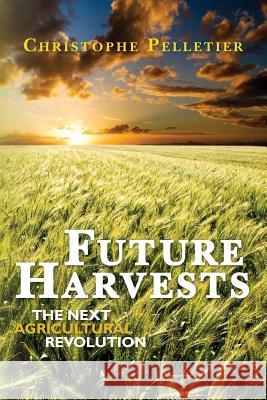Future Harvests: The next agricultural revolution » książka
Future Harvests: The next agricultural revolution
ISBN-13: 9781452851921 / Angielski / Miękka / 2010 / 278 str.
Future Harvests explores a very hot topic: Will we be able to feed nine billion people by 2050? The world population is growing fast. From six billion people in 2000, it is expected to pass nine billion by 2050. The urban population will double. Water shortages, climate change and soil degradation present a serious threat to the ability of farmers to produce the quantity of food required to meet future demand. In his new book, Future Harvests, Christophe Pelletier presents an objective and comprehensive overview of both the challenges and the potential solutions to produce more food. Using examples from around the world, the author illustrates the amazing potential for growing more food on the land, in the oceans, in the cities and even in the desert. The book covers a broad range of topics in simple, clear language, appealing to both industry specialists and readers with little knowledge of food production. Since its publication, several events mentioned in the book have started to become reality such as the erosion of the US dollar, food inflation, unrest in Arab countries, and the progressive implementation of new measures to control the markets of financial derivatives, in particular in European countries. This demonstrates the author's foresight and thorough understanding of the factors that influence the functioning of food markets. Future Harvests contains many more predictions about things to come in the world of food production and food security for the coming decades. The readers of this book will know what to expect and how to adapt to an ever-changing food supply environment. Future Harvests is a must read for everyone who wants to understand the future of food and farming Author Christophe Pelletier introduces the SIMPLE principles required to increase food production: Sustainability, Innovation, Market orientation, Pragmatism, Leadership, and Efficiency. Future Harvests reviews future farming strategies. The book discusses the pros and cons of large-scale vs. small-scale, industrial vs. organic, and local vs. global farming. It shows that, instead of choosing one system versus another, maximum progress will be achieved by taking the best of both worlds. Future Harvests addresses controversial topics such as genetic engineering, nanotechnologies, the so-called "land grabs," the development of biofuels, as well as investments and speculation by financial institutions. The next agricultural revolution will be about the way we think Once you have read Future Harvests, you will want to read the sequel: We Will Reap What We Sow.
Zawartość książki może nie spełniać oczekiwań – reklamacje nie obejmują treści, która mogła nie być redakcyjnie ani merytorycznie opracowana.











